Greek Economy Is On The Mend, But Shipbuilding -- One Of Its Oldest Industries -- Is In Final Collapse
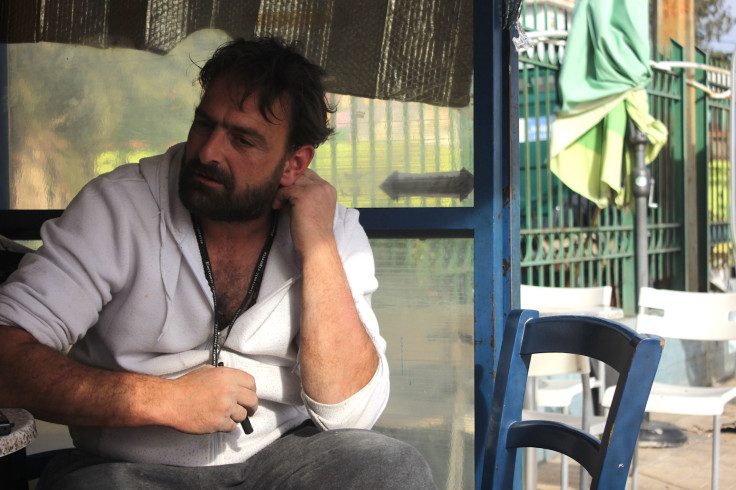
PERAMA, Greece – On paper, it appears that Greece's long economic crisis is ending.
The nation is beginning to rebound from the debilitating effects of surging borrowing costs and austerity measures attached to European Union bailouts, and as a result, “We will have a primary surplus in our budget, which has not been seen in Greece since the Forties,” observed Costas Botopoulos, head of the Commission on Capital Markets.
After six years in the economic danger zone, the country reported a surplus of 2.1 billion euros for the first two months of this year, surpassing its projected goal. Though the economy is no longer on life support, it remains seriously ill, and likely will be for years. Despite improvement in the last quarter of 2013, its GDP shrank by 3.9 percent last year, slightly worse than expected.
And, as is evident here in Perama, a city of 30,000 on the Soronic Gulf that owes its economy to the adjacent shipping port of Piraeus, the long-term impacts of the economic trauma will be profound.
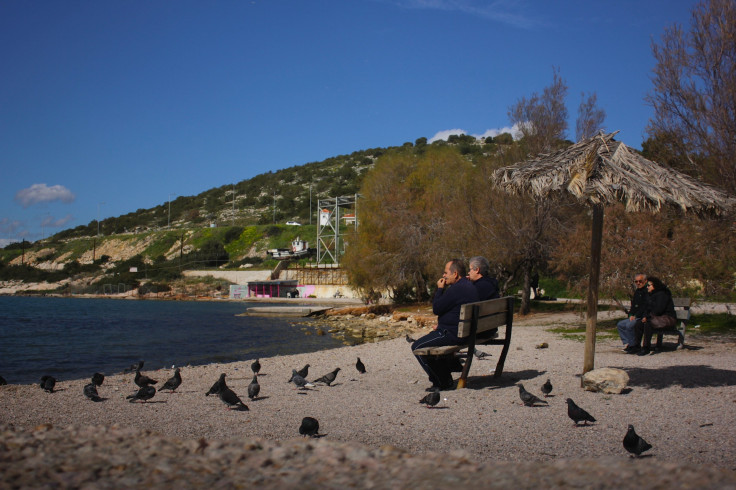
Until five years ago, an estimated 90 percent of Perama’s economy was based on the Piraeus shipyards. Today, unemployment here runs at around 60 percent, according to local government estimates, and as high as 95 percent among workers in the shipbuilding industry. Households have been devastated, and most see little hope for improvement.
Even in a country where unemployment is rampant, Perama’s rates are extreme. The unemployment rate in all of Greece stood at 27.5 percent in the fourth quarter of 2013, with young people between the ages of 15 and 24 the most severely affected, at a staggering 57 percent. The joblessness is expected to take years to overcome.
“The ability of people to produce and purchase things, the social effects of the crisis, are still here with us,” Botopoulos said. “The macro economics do not translate to the micro level as quickly.”
The effects of that differential include more than diminished buying power. According to U.S.-based Lancet's latest medical report “Greece’s Health Crisis,” published in March, austerity measures curtailed Greeks’ access to public health services to an extent that now constitutes a “public health tragedy.” In Perama, that tragedy includes malnutrition, a problem that would have been unfathomable before the economic crisis.
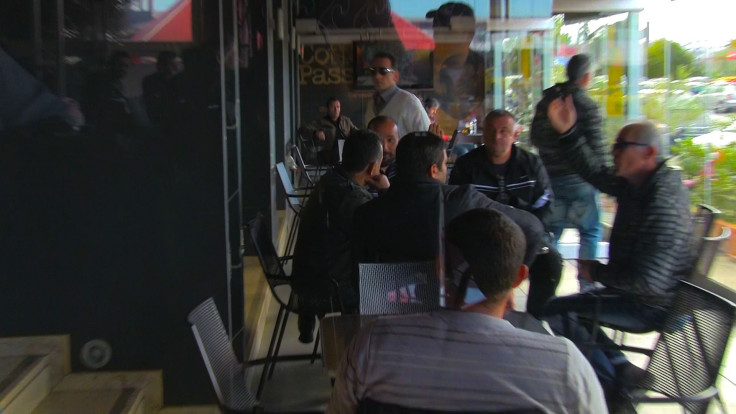
Staggering Unemployment, Dejected Ship Workers
The only businesses thriving in Perama these days are the cafés across from docked vessels in a port that, despite the region’s economic troubles, remains the fifth-largest maritime hub in the world. Greek shipowners enjoy a special tax-exempt status, though last year, after several months of talks with the government, the owners agreed to voluntarily pay increased taxes to aid in the nation’s economic recovery. But the blue-collar workers who once worked in the industry, and who have largely been replaced by overseas workers due to the outsourcing of shipbuilding by Greek companies, have received no assistance from the government due to cuts in public expenditures, including severance pay and unemployment assistance.
Most shipbuilding, the main specialty of Perama’s workers, is now being outsourced to shipyards in China, Korea and Turkey, where labor costs are much lower and minimally regulated. To find jobs, local workers must therefore become migrant workers themselves.
“We have to go outside for employment. When we have the chance, we travel to Germany and even more north and work many days in a row without stopping,” explained a worker named Panagiotis, who declined to give his surname, and who as a specialized fleet repairman now relies on sporadic overseas opportunities. Panagiotis fears that his hometown, which historically thrived due to its maritime geography, is falling apart owing to the combination of outsourcing and long-term economic damage.
Life in Perama, including further observations from Costas Botopoulos, can be seen in the following video:
With its local shipyards now resembling ghost towns, Perama and nearby Eleusis and Skaramagas, once home to the biggest shipyards in the eastern Mediterranean, have borne the brunt of a steep economic downturn that hit Greece’s shipping industry even before the real trouble began for the country in 2010. That downturn prompted shippers to look elsewhere for cheaper vessels. Dejected by long-term unemployment, most shipyard workers in Perama are now statistically classified as “inactive” job seekers belonging to “income-less households.” The shipbuilding industry was struggling prior to Greek’s economic meltdown, largely due to a sharp slowdown in international trade after the global economic crisis of 2008. Greek shippers began aggressively cutting the costs, including by outsourcing production abroad, to gain a competitive edge. Greece’s economic crisis in 2010 accelerated the trend.
An employment plunge – the loss of an estimated 1 million jobs, idling 20 percent of the workforce -- between 2008 and the end of 2013 has diminished buying power, and continued impoverishment among low- or no-income families has led to rising malnourishment among children, and infant mortality rates that are reminiscent of developing nations. Given the dearth of healthcare, free clinics by NGOs such as Doctors of the World that were originally set up to treat illegal migrants now cater to Perama’s ailing residents. Anna Maili, a physician at a local clinic run by Doctors of the World, said that for all practical purposes there is no public health system in Greece. Her organization is currently gathering data on development rates of infants and children to quantify the health impacts of the depressed economy.
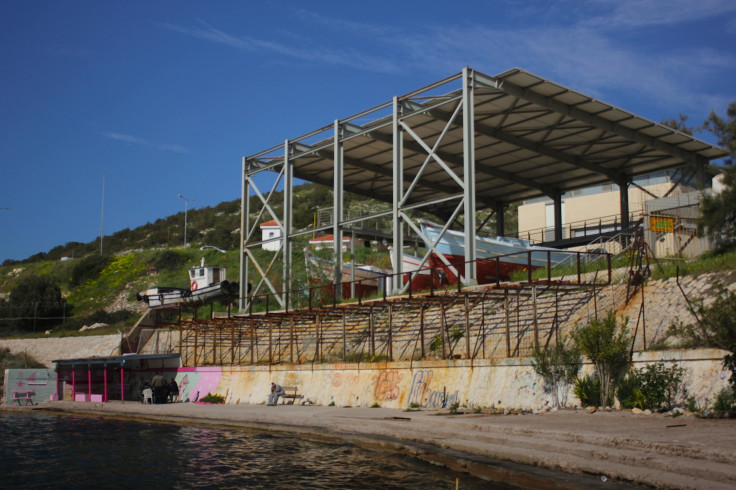
As Piraeus’ shipyard workers struggle not only to get by but to eat and stay healthy, the shipping industry itself is rebounding, having benefited from transnational partnerships that resulted in strategic loans, especially from Chinese companies, during the Greek economic crisis. The shipping industry is also bolstered by its constitutionally guaranteed tax exemptions. One of the world’s most prestigious maritime events, the Posidonia Exhibition, will take place in Piraeus in June, and Greek shipowners, the largest buyers of new vessels in 2013 (worth approximately $4.5 billion USD) will feature as central figures of the event.
As Greek shipowners have outsourced work to countries with labor costs that would be infeasible in Perama, the Greek government has done little to protect local workers’ interests.
“We are the best in repairing ships, but we are more expensive,” Panagiotis said of Perama’s shipbuilding industry. “So, if the shipowners want to save some money, they go somewhere else.”
All of which means that as Greek shipping companies rebound, and buy more vessels than anyone else, the yields are not benefitting Greece's job market or, in particular, its shipbuilding economy. In fact, the local labor market is collapsing.
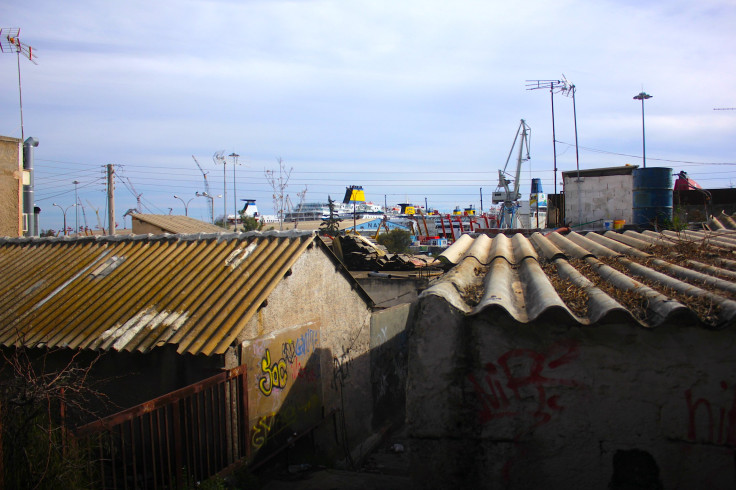
Theodore Veniamis, a shipping tycoon and president of the Greek Shipowners Association, maintains that Greek shipowners have been at the forefront of global shipping for a century, and overall the industry has benefited from sound economic decisions such as seeking out cheap credit from large consumers such as China. And if one ignores the realities for the shipbuilding workers, there is plenty for the shipping industry to brag about. Greece, a small nation of 11 million, maintains the largest merchant fleet ships in the world, with 3,428 vessels, representing 16 percent of the fleet of dry-bulk and container vessels and approximately a quarter of all oil tankers, for an overall figure of 17 percent. Greek ships supply 60 percent of China’s raw material transport needs.
The Greek parliament’s recent attempt to overturn tax privileges for shipping companies was met with overt threats from shipowners to move their business abroad – an unaffordable option for a recovering economy, where the maritime industry has historically brought in the bulk of revenue and employment.

According to data from the latest Gallup World Poll, one in four respondents in the Organization for Economic Cooperation and Development (the European Union, North America and Australia) reported income difficulties in 2013, while the number was three in four for Greece. Today, Greece has the highest number of households that report no income, with one in five adults living in a household in which no one has a job.
Austerity measures that the troika of lenders -- the European Commission, the European Central Bank and the International Monetary Fund -- mandated as part of the Greek bailout, focused heavily on cuts in public expenditures. The inevitable result, as Lancet explained, is a country where public spending on health is “less than any of the pre-2004 European Union members.”
With the economy shrinking by almost 24 percent between 2008 and 2014, and public expenditures capped at 6 percent of the GDP, a fledgling attempt to reduce deficits in the short term has resulted in a failing national health system, six years on.
While the Greek government advocates revising the EU lending agreement, given recent economic improvements, ordinary citizens languish – especially in the shipbuilding community in Perama.
The question facing workers there is whether there is any hope for their livelihoods to survive, regardless of whether the country’s economic rebound continues.
“We have to get used to living in a state of crisis,” said Panagiotis. “The emergency mode will not pass anytime soon.”
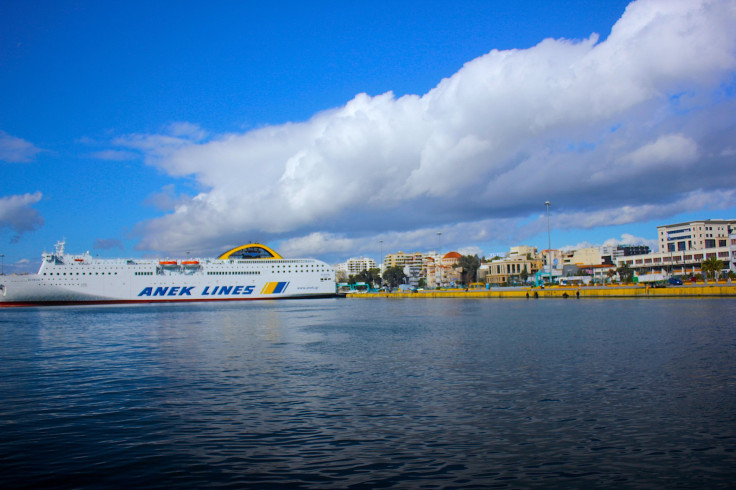

Scenes inside a Doctors of the World clinic can be seen in this video:
Additional reporting by Luigi Spinola.
© Copyright IBTimes 2024. All rights reserved.
Join the Discussion





















